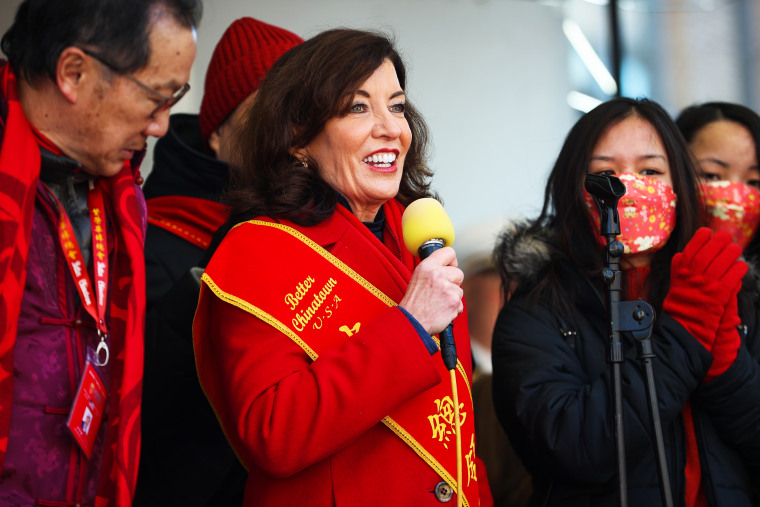New York Gov. Kathy Hochul announced Sunday that $10 million will be given to organizations supporting Asian American communities disproportionately affected by the pandemic.
The funding will be allocated through the Asian American Federation, the Coalition for Asian American Children and Families and the Chinese-American Planning Council, and these organizations will distribute the money to community groups that provide direct services.
“The COVID-19 pandemic has had a devastating effect on so many vulnerable and marginalized communities across New York State,” Hochul said in a statement. “The Asian American community was especially hard hit, not only by the virus, but by an increase in hate and violent crimes.”
The AAF will get $6.8 million to provide support for organizations that have witnessed a sudden increase in demand for services due to the pandemic.
Joo Han, deputy director of AAF, said these resources are long overdue.
“The lack of investment that supports the most vulnerable members of the pan-Asian community was glaringly obvious during the pandemic when we scrambled to find resources to meet the needs that government wasn’t able to,” Han said in an email to NBC Asian America. “The rise of anti-Asian violence and the sharp and sustained increases in demand for direct services has been staggering.”
AAF will directly fund 59 community organizations that provide food pantries for families impacted by job loss; offer home-delivered meals to older adults; run after-school programming for children affected by remote learning; offer case management to help clients access affordable housing, immigration legal services and domestic violence services; and offer vital mental health services, according to Han.
Organizations include Arab American Association of New York, Asian American Legal Defense and Education Fund, Chinese-American Family Alliance for Mental Health and Sakhi for South Asian Women.
Data published by the Center for the Study of Hate and Extremism at California State University, San Bernardino showed that anti-Asian hate crimes increased by 339 percent last year compared to the year before, which is part of an overall 11 percent increase in suspected hate crimes reported across a dozen of America’s largest cities.
“The increase in anti-Asian violence and hate combined with the economic devastation of the pandemic have left our community in crisis,” Wayne Ho, president and CEO of the Chinese-American Planning Council, said in a statement.
The CPC will receive about $700,000 to expand public access to resources, expand workforce services, enhance wrap-around case management and expand early childhood development.
Asian American businesses were hit on multiple fronts during the pandemic, including closures, language barriers making it difficult to access government aid and fear of safety as anti-Asian violence rose.
Nearly 90 percent of small Asian American firms lost revenue last year, a rate higher than for other racial and ethnic groups, according to a study released by the New York Federal Reserve and AARP in March.
The $10 million in funding will come from New York’s $212 billion spending plan, the largest budget in the state’s history, which passed in April.
